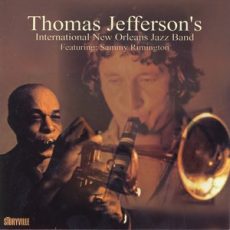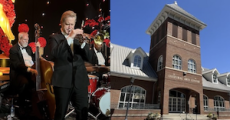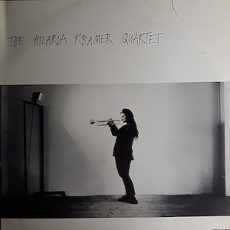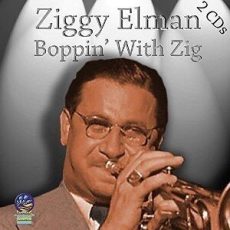
CHIEF XIAN ADJUAH
Chief Xian aTunde Adjuah [formerly Christian Scott] is a two-time Edison Award-winning, six-time Grammy Award-nominated, Doris Duke Award in the Arts awardee. He is a sonic architect, trumpeter, multi-instrumentalist, composer, producer, designer of innovative technologies and musical instruments including The Stretch Music app, Adjuah Trumpet, Siren, Sirenette, Chief Adjuah’s Bow and Chief Adjuah’s N’Goni.
He is the founder and CEO of the Stretch Music App and Recording Company. Adjuah is Chieftain and Oba of the Xodokan Nation as well as the current Grand Griot of New Orleans. He is the grandson of Louisiana luminary and legend, the late Big Chief Donald Harrison Sr., Guardians Institute founder and Grand Griot, Herreast Harrison. And is the nephew of Jazz innovator and NEA Jazz Master saxophonist-composer, Big Chief Donald Harrison Jr. Adjuah and his twin brother Kiel joined his grandfather’s Guardians of the Flame banner in 1989 at the age 5.
Since 2001, Adjuah has released thirteen critically acclaimed studio recordings, four live albums, and one greatest hits collection. He is widely recognized as the progenitor of the “Stretch Music,” style. A 21st-century approach that asserts genre blindness and an ethnomusicological approach to limitless fusion that heralded NPR to hail him as “Ushering in a new era of Jazz” and JazzTimes Magazine to mark him as “Jazz’s young style God.” and “the architect of a commercially viable fusion”.
He has collaborated with a number of notable artists, including Prince, Thom Yorke, McCoy Tyner, Marcus Miller, Flea, Eddie Palmieri, Robert Glasper, rappers Mos Def (Yasin Bey), Talib Kweli, as well as heralded poet and musician Saul Williams. Adjuah scores music for his identical twin brother’s, writer/director and visual artist Kiel Adrian Scott, filmic works. Scott is a Directors Guild of America Award recipient whose works have been honored with The Peabody Award and an NAACP Image Award.
Cover: $36.00 ~ $84.00
More Posts: adventure,bandleader,club,genius,instrumental,jazz,music,preserving,travel,trumpet

Daily Dose Of Jazz…
Thomas Jefferson was born on June 20, 1920 in Chicago, Illinois. He played drums and French horn while young before switching to trumpet and was strongly influenced by Louis Armstrong. His professional career began when he was 14 playing with Billie and De De Pierce.
He played with Papa Celestin’s orchestra in 1936, as well as with New Orleans jazz musicians Sidney Desvigne and Armand “Jump” Jackson. The 1950s saw him working with Johnny St. Cyr, Santo Pecora, and George Lewis. In 1966, Andrew Morgan recruited Jefferson to play lead trumpet for the Young Tuxedo Brass Band. Subsequently, Jefferson led a jazz band which performed at the New Orleans jazz club Maison Bourbon.
Thomas recorded sparingly as a leader; sessions include dates for Southland Records in the 1960s and Maison Bourbon Records in the 1970s. Jefferson had a cameo as a jazz musician in the 1975 film Hard Times.
Trumpeter Thomas Jefferson, who recorded six albums as a leader and played Dixieland, died in New Orleans, Louisiana on December 13, 1986.
More Posts: bandleader,history,instrumental,jazz,music,trumpet

JOE GRANSDEN
Joe Gransden celebrates The Good Life: A Musical Tribute to the Artistry of Tony Bennett!
Joe and the band as they take you on a swingin’ stroll through the life and career of Tony Bennett! One of the greatest performers of the American Songbook, Tony Bennett’s tone, phrasing and feel set him apart from other vocalists of his era.
Tickets: $40.50
More Posts: bandleader,genius,instrumental,jazz,music,preserving,trumpet,vocal

Daily Dose Of Jazz…
Hilaria Kramer was born on June 1, 1967 in Frauenfeld, Switzerland and began playing the trumpet when she was ten years old. Beginning in 1983 she attended the vocational school department of Jazz School St. Gallen, where she studied under Benny Bailey and Art Lande.
After graduating she went on to work in Italy with the Claudio Fasoli Quintet, with Gianluigi Trovesi. She performed with Steve Lacy, Enrico Rava, Joe Henderson, Bob Mover, Sal Nistico, Chet Baker and Sangoma Everett. 1988 saw her recording her debut album leading her own quartet. The album was released in the spring of the following year on Unit Records.
1991 had Hilaria performing on the TV program Ladies in Jazz with singers Nina Simone and Carmen McRae. Over the next few years, she performed with Uli Scherer in Vienna and also toured around Europe.
In 2014, Kramer was awarded the Jazz Prize of the Fondation Suisa for her services as a musician, composer and band leader as well as her work in various organizations that support Swiss jazz.
Trumpeter and composer Hilaria Kramer, who has a discography of eighteen albums as a leader and sidewoman, continues to record, perform and tour.
More Posts: bandleader,composer,history,instrumental,jazz,music,trumpet

Daily Dose Of Jazz…
Ziggy Elman was born Harry Aaron Finkelman on May 26, 1914 in Philadelphia, Pennsylvania. but his family settled in Atlantic City, New Jersey when he was four. His father was a violinist who had hoped he would play violin and although he did learn to play violin, he preferred brass instruments. He began playing for Jewish weddings and nightclubs at age 15.
In 1932, made his first recording, playing the trombone. In 1936, he joined the Benny Goodman orchestra as a trumpeter, after playing briefly with a band led by Alex Bartha at Steel Pier in Atlantic City, where Goodman heard him. In 1938, while with Goodman, he got a contract with Bluebird, RCA’s cheaper label, to record 20 sides as Ziggy Elman and his Orchestra, although all the members were in Goodman’s band.
One original tune was Frailach in Swing, based on a 1918 recording of Der Shtiller Bulgar (The Quiet Bulgar) by Abe Schwartz. During the first half of 1939, Benny Goodman and His Orchestra was featured on the Camel Caravan radio show, with singer and songwriter Johnny Mercer as singer, writer of speciality numbers, and announcer. After leaving Goodman in 1940, Elman joined Tommy Dorsey and stayed until he was drafted in 1943. After he was discharged in 1946, he re-joined Dorsey for another year.
In 1956, he was asked to recreate a klezmer solo with the vocalist Martha Tilton for the movie, The Benny Goodman Story, but was unable to, his technique having since withered away. Elman appeared performing it in the film, but another trumpeter, Mannie Klein, played the solo on the soundtrack.
By the 1950s, the music had changed. Big bands had declined and for a time he switched to entertainment work. In this decade he appeared in films mostly as himself. In 1956 he had a heart attack, curtailing his music career. By the end of the 1950s he was financially ruined, and had to work for a car dealership. In 1961, it was revealed at an alimony hearing that he was virtually bankrupt. He later worked in a music store and gave trumpet lessons.
Trumpeter Ziggy Elman died of liver failure on June 26, 1968 at the age of 54 and was buried at Mount Sinai Memorial Park Cemetery in Los Angeles, California.
More Posts: history,instrumental,jazz,music,trumpet



